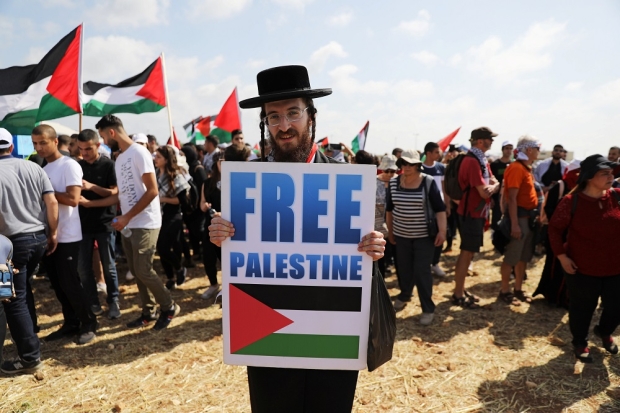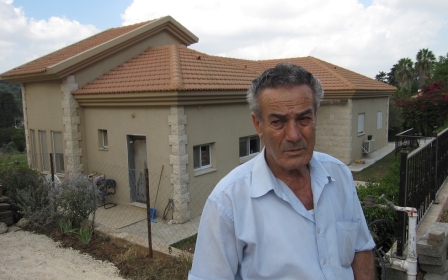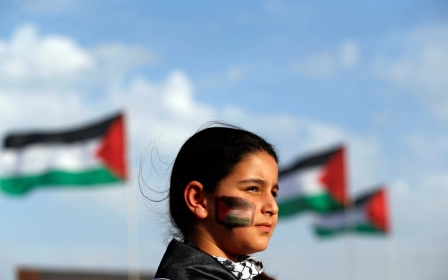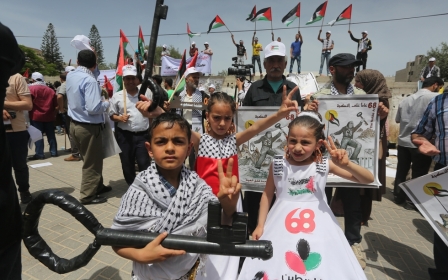'Israeli independence is our catastrophe': Palestinians mark 1948 Nakba
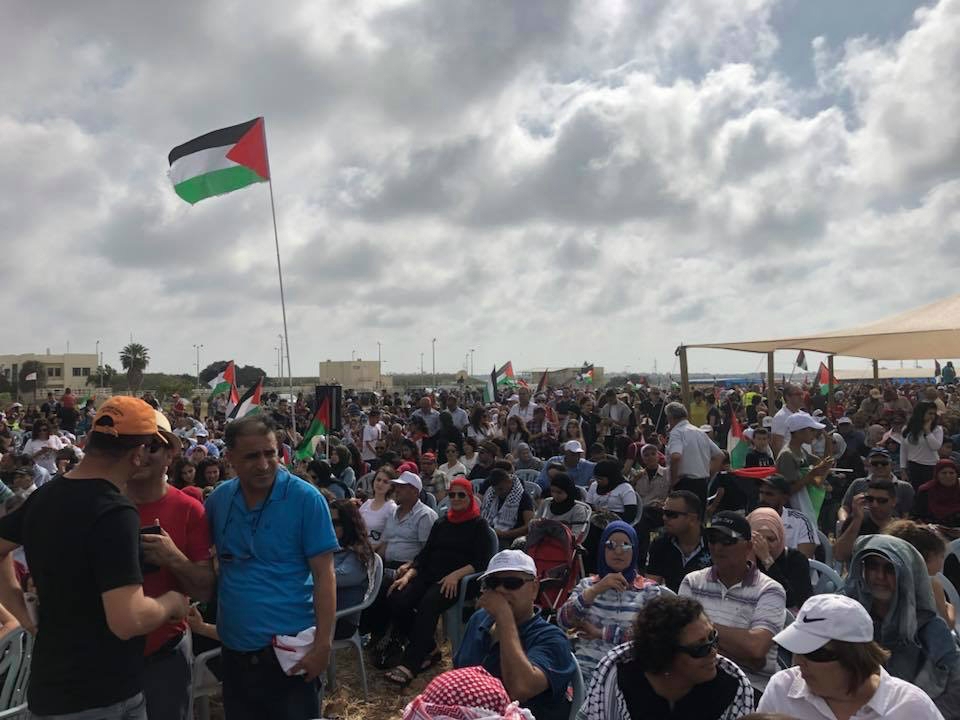
As Israelis marked Independence Day on Thursday, thousands of Palestinians marched in present-day Israel with a slogan: “Their independence is our Nakba”.
Representing some 20 percent of the Israeli population, Palestinian citizens of Israel have for years organised a “March of Return” on Israeli Independence Day - which is commemorate either on 15 May, or on 5 Iyar in the Hebrew calendar.
The participants send a clear message to the Israeli establishment that they do not waive their right of return
- Munib Tarabeh, deputy mayor of Sakhnin
On Thursday, more than 10,000 demonstrators, young and old, marched towards Atlit, a small coastal village south of Haifa which was completely destroyed in 1948;
British Mandate authorities had established a prison near Atlit, in which it held Jewish migrants trying to enter Mandate-Era Palestine. Israeli authorities later used to prison to hold Palestinian and Lebanese prisoners of war when conflict broke out in the wake of the creation of the Israeli state.
"I participate in this activity to commemorate the Nakba (of 1948)and the ongoing Nakba as a personal and psychological act of liberation, as a revolutionary movement to counter what the Zionist colonisation has imposed onto us," Hazar Hijazi, an activist present at the march, told Middle East Eye.
“This is an annual event, for Palestinians inside (Israel) to affirm that they are still an inseparable part of the Palestinian people,” Munib Tarabeh, the deputy mayor of the Palestinian-majority Israeli town of Sakhnin, told MEE.
“The participants send a clear message to the Israeli establishment that they do not waive their right of return, and that all land that was abandoned (in 1948) must be returned to its owners, even after all this time. The children of Barwa, the children of Atlit, and the children of Iqrit must return,” he added, naming several depopulated Palestinian villages.
“It is unthinkable that the owners of the land remain displaced in refugee camps and in the diaspora, while those who have no rights to it have settled in their place.”
Tarabeh was one of a number of political figures who attended the rally, along with parliamentarians from the Arab Joint List bloc.
"The memory of the Nakba is painful and difficult. It is not only the tragedy of the people and the nation, it is a personal issue for the refugees who were uprooted from their land and villages," Mohammed Barakeh, a former Knesset member and head of the High Follow-Up Committee for Arab Citizens of Israel, said in a speech.
"The Nakba is painful, but these crowds prove that this land is a cause and our homeland is Palestine."
The march takes place each year to one of the 500 Palestinian villages that were forcibly demolished or depopulated in 1948, turning 750,000 Palestinians into refugees.
The majority of the more than 1.65 million Palestinian citizens of Israel were internally displaced during the Nakba and have been unable to return to their original villages.
According to legal rights organisation Adalah, more than 65 Israeli laws discriminate between Palestinian and Jewish citizens of Israel - "from citizenship rights to the right to political participation, land and housing rights, education rights, cultural and language rights, religious rights, and due process rights during detention".
The annual March of Return in Israel is also seen as having influenced the ongoing "Great March of Return" in the besieged Gaza Strip.
The six-week demonstration, which started on 30 March for Land Day and is set to end on Nakba Day on 15 May, calls for the return of the small coastal territory's 1.3 million refugees to their original villages.
The Gaza protests have been violently targeted by Israeli forces, who have killed 33 and injured at least 4,279 Palestinians as of 18 April, according to the Gaza ministry of health.
"My participation today in the march back to Atlit is tied to the return march launched by our people in Gaza," Hijazi said. "It is a conscious move and a unified Palestinian discourse saying that return unites us."
New MEE newsletter: Jerusalem Dispatch
Sign up to get the latest insights and analysis on Israel-Palestine, alongside Turkey Unpacked and other MEE newsletters
Middle East Eye delivers independent and unrivalled coverage and analysis of the Middle East, North Africa and beyond. To learn more about republishing this content and the associated fees, please fill out this form. More about MEE can be found here.


